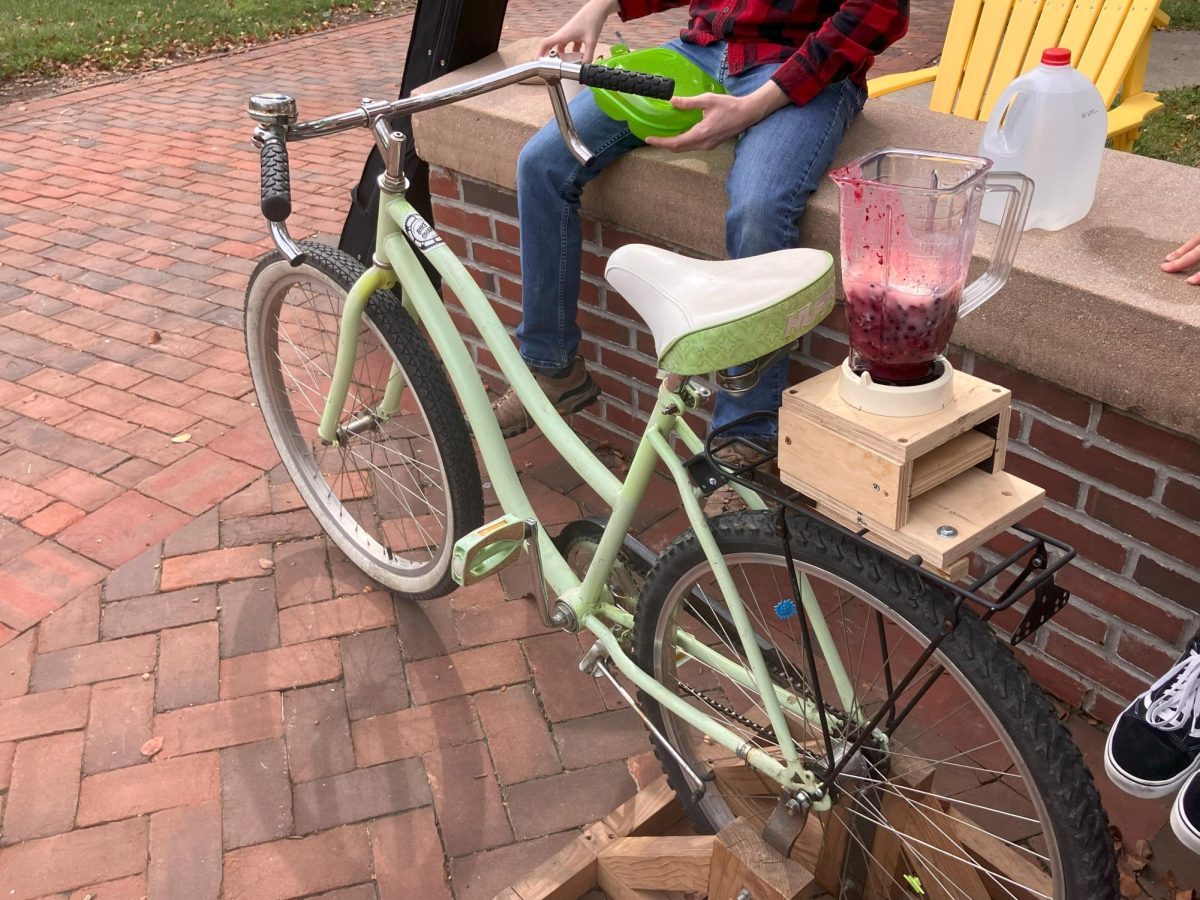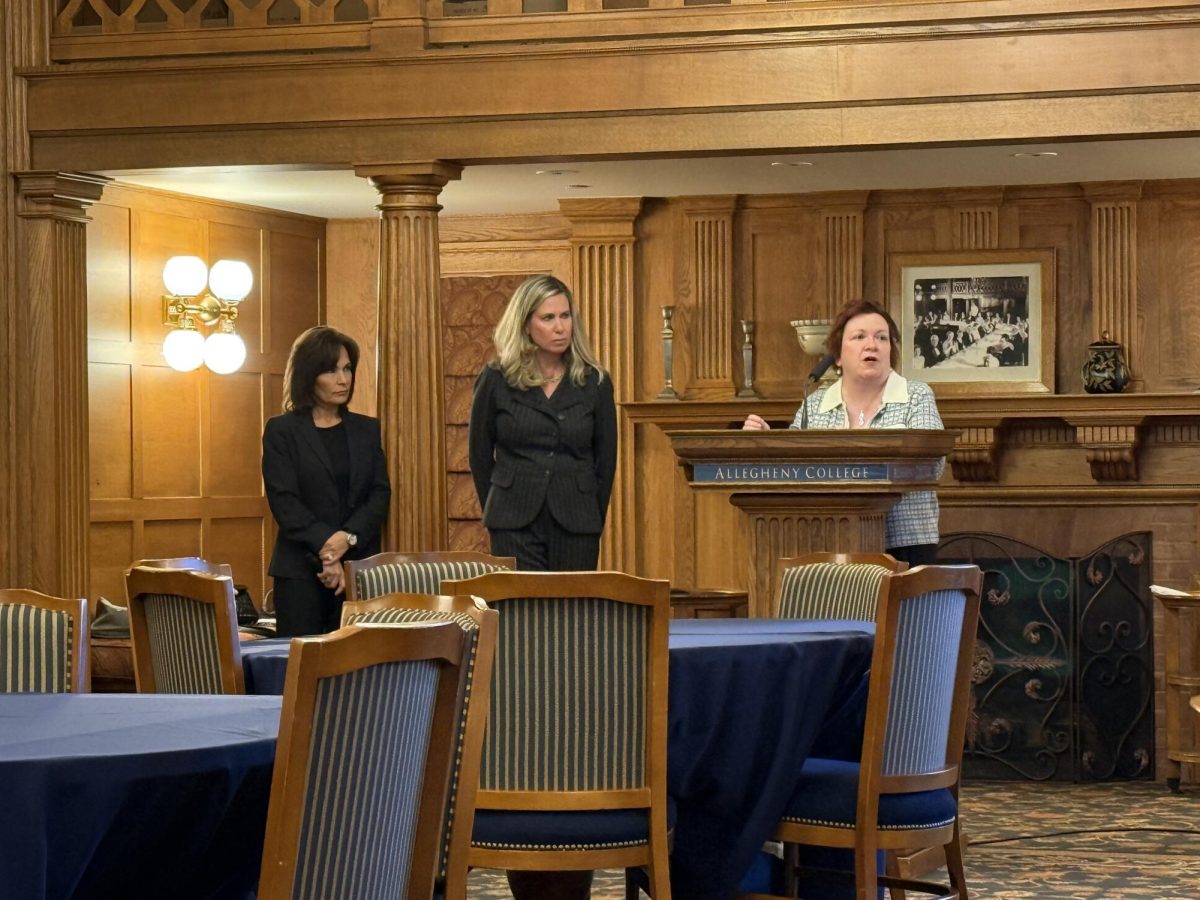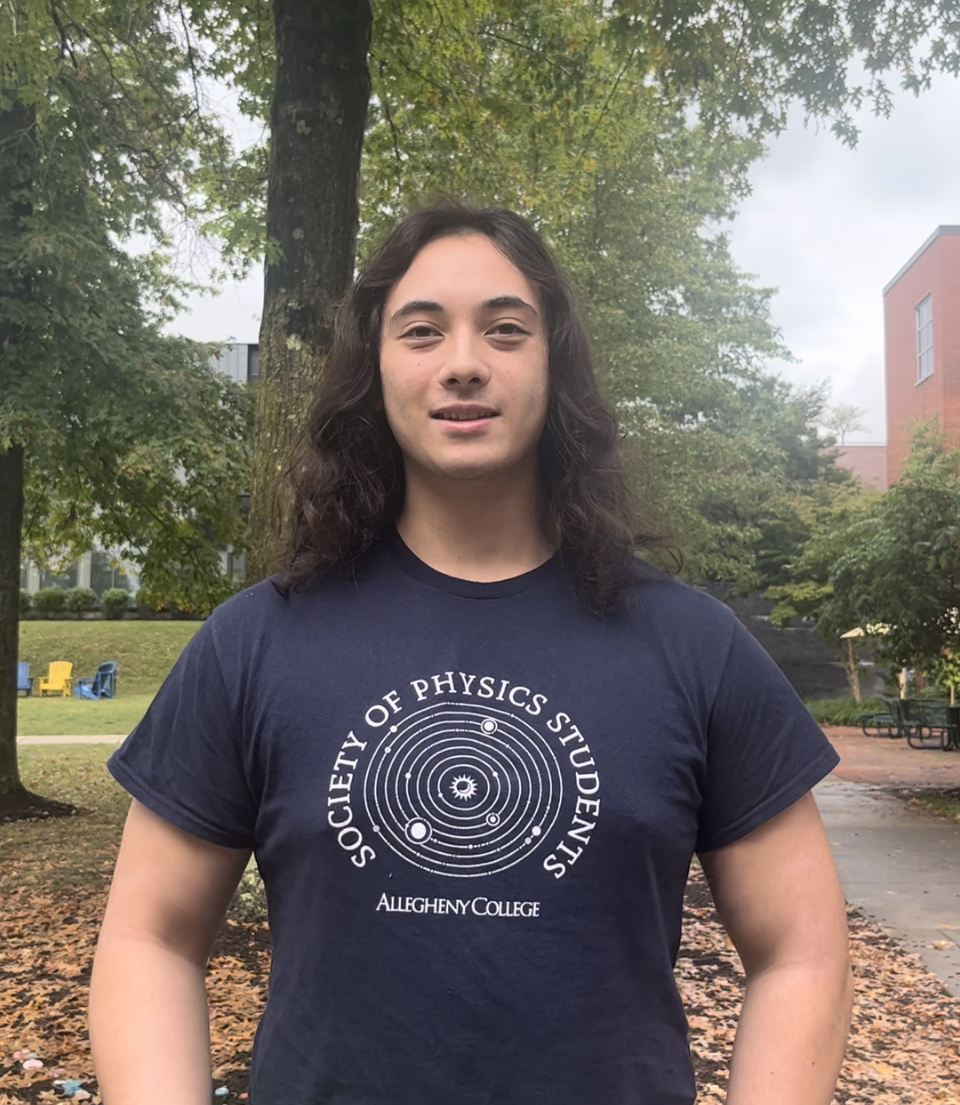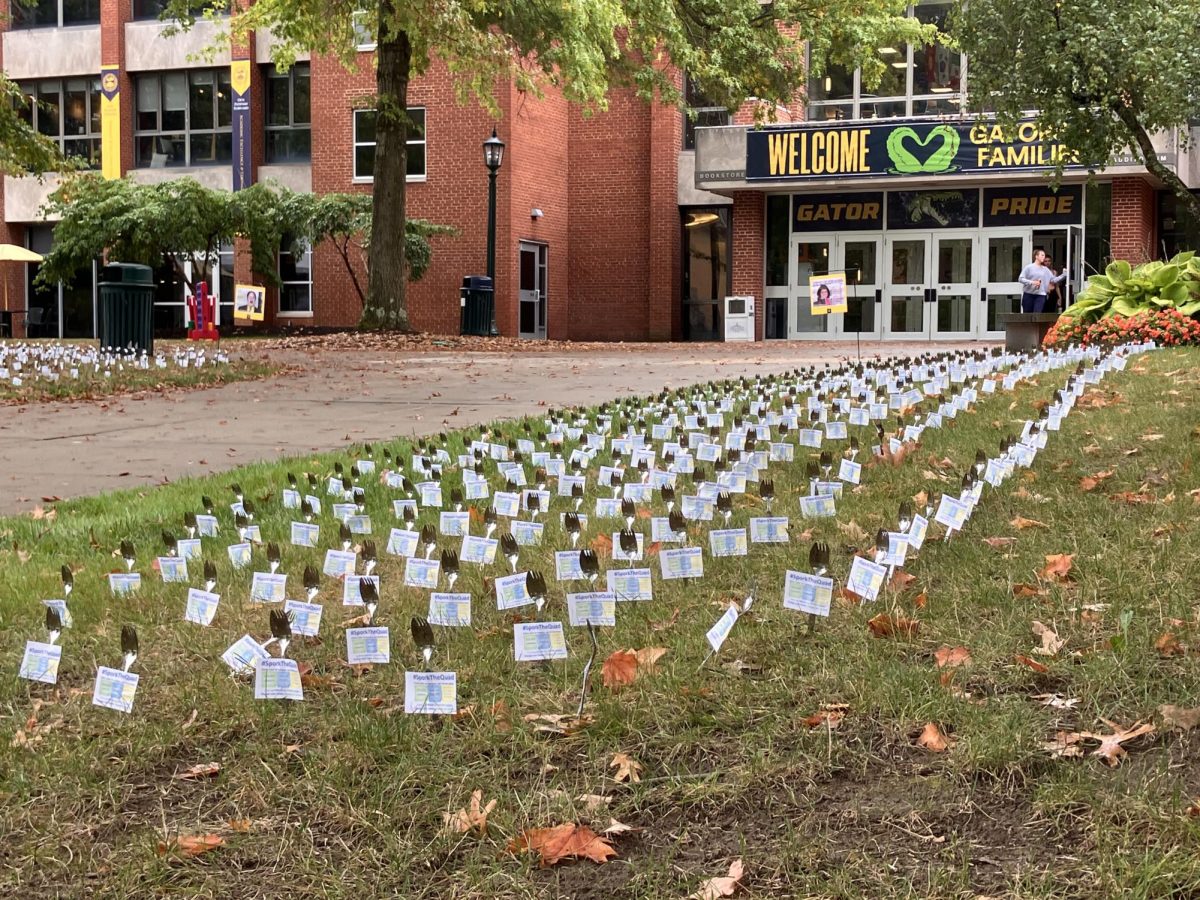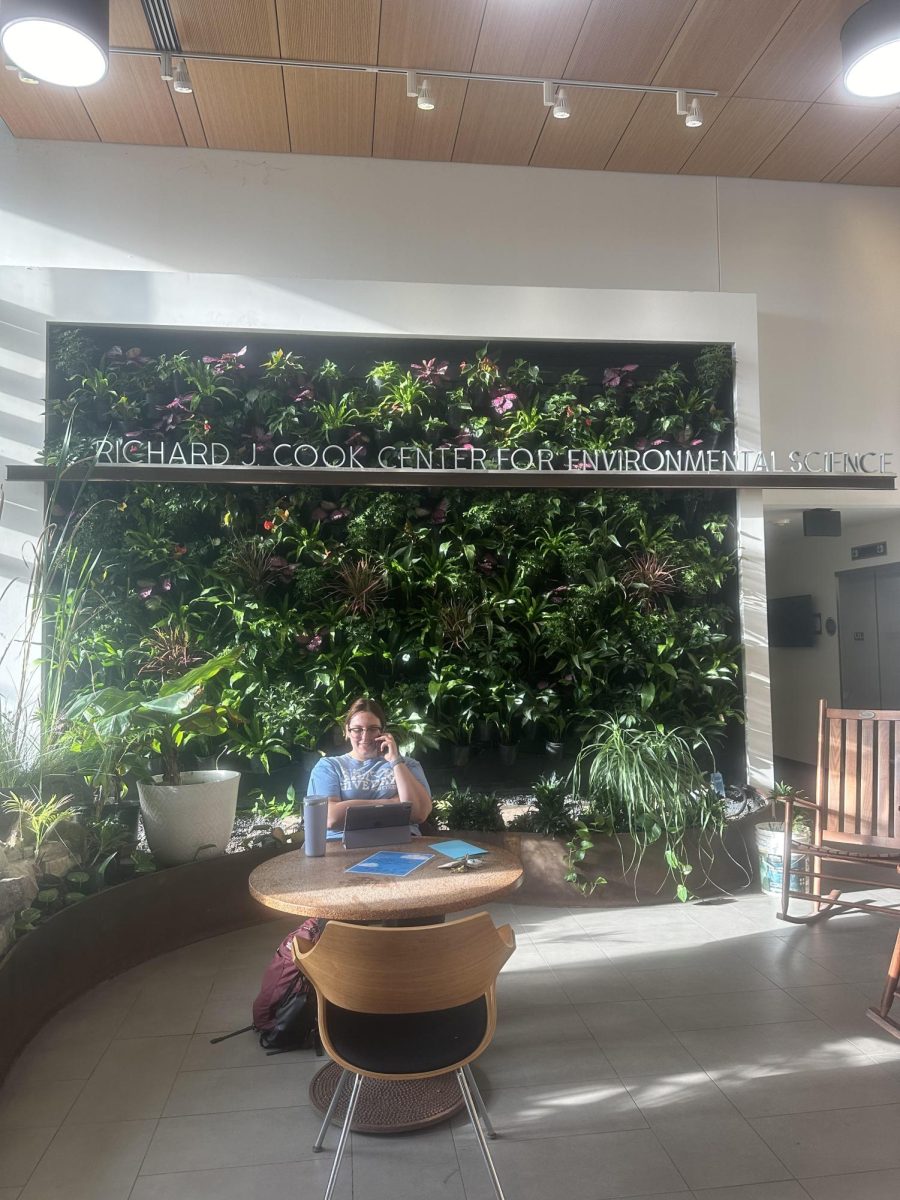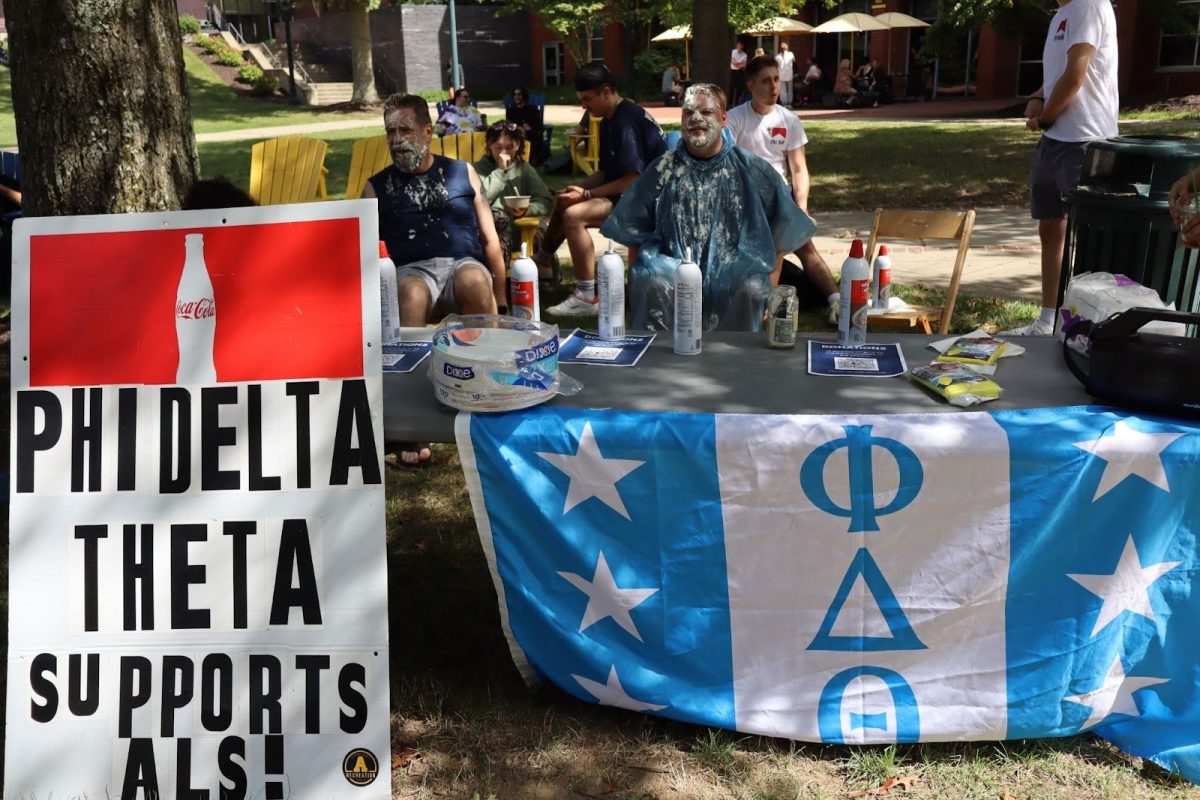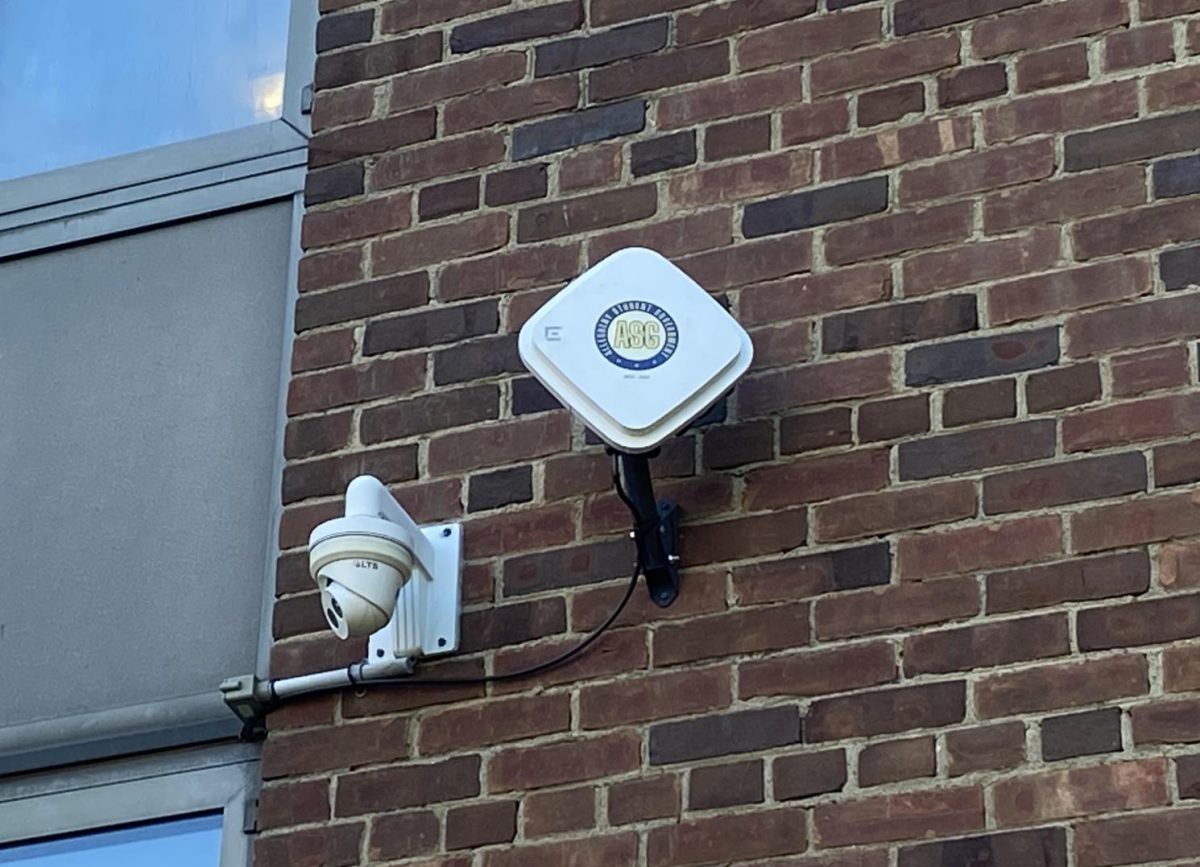The triennial Honor Code referendum planned for this semester will put significant changes to the code up to a student vote, the Allegheny Student Government heard at its General Assembly Tuesday, Jan. 30. ASG also heard good news for efforts to combat food insecurity on campus.
Honor Code
The guest speaker on Tuesday was Rachael Lutz, ’24, chair of the Honor Committee. Composed of 12 students — four each from the sophomore, junior and senior class — and advised by both a faculty and staff member, the Honor Committee is designed to be a neutral, student-run adjudicator for any allegations of academic misconduct. Any potential violations of the Honor Code run through the committee.
The Honor Committee is also responsible for reviewing and proposing changes to the Honor Code, which is re-approved in a spring referendum of first-, second- and third-year students every three years. Seniors are excluded because they will graduate before changes are implemented in the fall semester.
Lutz said that the committee had already met with the Faculty Council about the revisions and had received positive feedback. On Tuesday, she was in attendance to hear ASG’s thoughts.
“We want to make sure that the student voice is being heard throughout this process, so as I talk through the changes, I want to make sure that you all feel encouraged to give me any of your questions, comments, concerns,” Lutz said, adding that the changes were the result of a “multi-year process.”
The largest proposed change is to Article III, Section 5, the “Expedited Process.” Currently, the code allows first-time offenders to admit wrongdoing in exchange for certain sanctions, as opposed to conducting a full hearing.
Lutz said that while the current system was providing a punitive service, it was not educating students to prevent them from violating the code again. Instead, the committee is proposing a “Mutual Agreement” system — one that Lutz said was already successfully implemented in student conduct.
“It requires a greater deal of student participation,” Lutz said. “Rather than a student simply admitting responsibility and attending a hearing and going through the motions of it, we are asking students to write a ‘letter of agreement.’ In this ‘letter of agreement,’ we’re really trying to focus on communication between the student and the professor.”
The letter would detail what the violation was, why it happened, who was affected and what will be done to avoid future violations, Lutz said.
The code will also include clarifying language on the use of generative AI, which is banned by both the current and revised versions of the code.
“The Honor Code does currently prohibit the use of any outside resource without an instructor’s permission, but with generative AI being a new technology, a lot of students are confused about where it falls within the Honor Code,” Lutz said. “Adding this new clause about generative AI just helps to clarify things for students and make it easier for them to be able to avoid Honor Code violations.”
The remaining changes involve primarily wording and clarity, Lutz added.
“For example, the new Honor Code revisions specify very clearly that it’s up to the professor to specify within their syllabus what constitutes unauthorized aid and what aid would be authorized,” Lutz said.
Following her presentation, Lutz took questions from ASG. Among them was a question from ASG President Nicole Recio Bremer, ’25, who asked what would happen if the referendum was not approved.
“If the Honor Code is voted down by the student body then an administrative honor code would be put into place for the next academic year,” Lutz replied. “That would likely be very similar, if not identical, in what it decides is and isn’t a violation of the Honor Code — but it would likely not include some of the benefits of the (student) Honor Code, like taking unsupervised exams.”
Recio Bremer also asked how many votes were needed to pass the code, to which Lutz replied that it was “a majority” of first, second and third-year students. Lutz clarified in an email Wednesday that this majority is of all students eligible to vote, not just students that vote — meaning that the referendum needs more “yes” votes than both “no” votes and non-voting students.
After the meeting, Lutz said she was confident that the Honor Code would be reapproved, noting that the program has been supported by students since it was established in the 1960s. The code has been put up for a student vote since 1990 — and has passed every time, according to the committee’s website.
“In all of the years we’ve had the Honor Code, it’s always passed,” Lutz said. “I’d say I’m pretty confident.
PA Hunger Free Campus
During their cabinet report, Co-Director of Student Affairs London Dejarnette, ’24, mentioned that they had submitted an application for Allegheny to be designated a “PA Hunger Free Campus.”
When Dejarnette said this, Dean for the Student Experience Ian Binnington raised his hand from where he sat in the back of the room.
“We got it,” Binnington said.
“We got it?” Dejarnette asked.
“We got it,” Binnington replied.
This set off two rounds of knocking on the tables — ASG’s form of applause.
Once the chamber had settled down, Dejarnette added that the designation had been, “a long time coming.”
“If you didn’t know, the (Pennsylvania) Department of Education has a program called PA Hunger-Free Campus, which essentially provides funding to address food insecurity on campus,” Dejarnette said.
The designation is good news for food security advocates, as it opens up additional state grant funding opportunities for the college. For example, around $1 million was awarded through the initiative to 30 different institutions at the start of 2024.
Dejarnette shared a number of other food security updates, including that data from last fall’s food insecurity survey had been processed and will be released soon. Dejarnette also shared data from the Food Resource Center, which had been restocked Monday evening.
“We found that 70.58% of the refrigerated goods were taken within the first day, and 90.12% of the dry pantry goods were taken in the first day as well,” Dejarnette said. “So it’s turning over very fast.”
They added that the new data demonstrated that the food pantry needed to be restocked more often.
Credit overload fee
During his report, Class of 2026 President Lorenzo Scarnati brought up a letter penned by two of his classmates — Olivia Alexander, ’26, and Graham Carr, ’26. The duo are “trying to open up a discussion within the student body” about Allegheny’s course overload fee, Scarnati said. The college currently charges $2,263 per credit hour past 20 credit hours in a semester, a policy that only applies to students that joined in the fall of 2022 or later.
Scarnati noted that the letter is available to sign in Grounds for Change, and a digital copy is available by contacting Alexander and Carr.
Chief Information Officer Katrina Yeung will be the guest speaker next week, to discuss a potential capital project for ASG’s roughly $500,000 Surplus Fund. ASG will reconvene next Tuesday, Feb. 6, in room 301/302 of the Henderson Campus Center.



